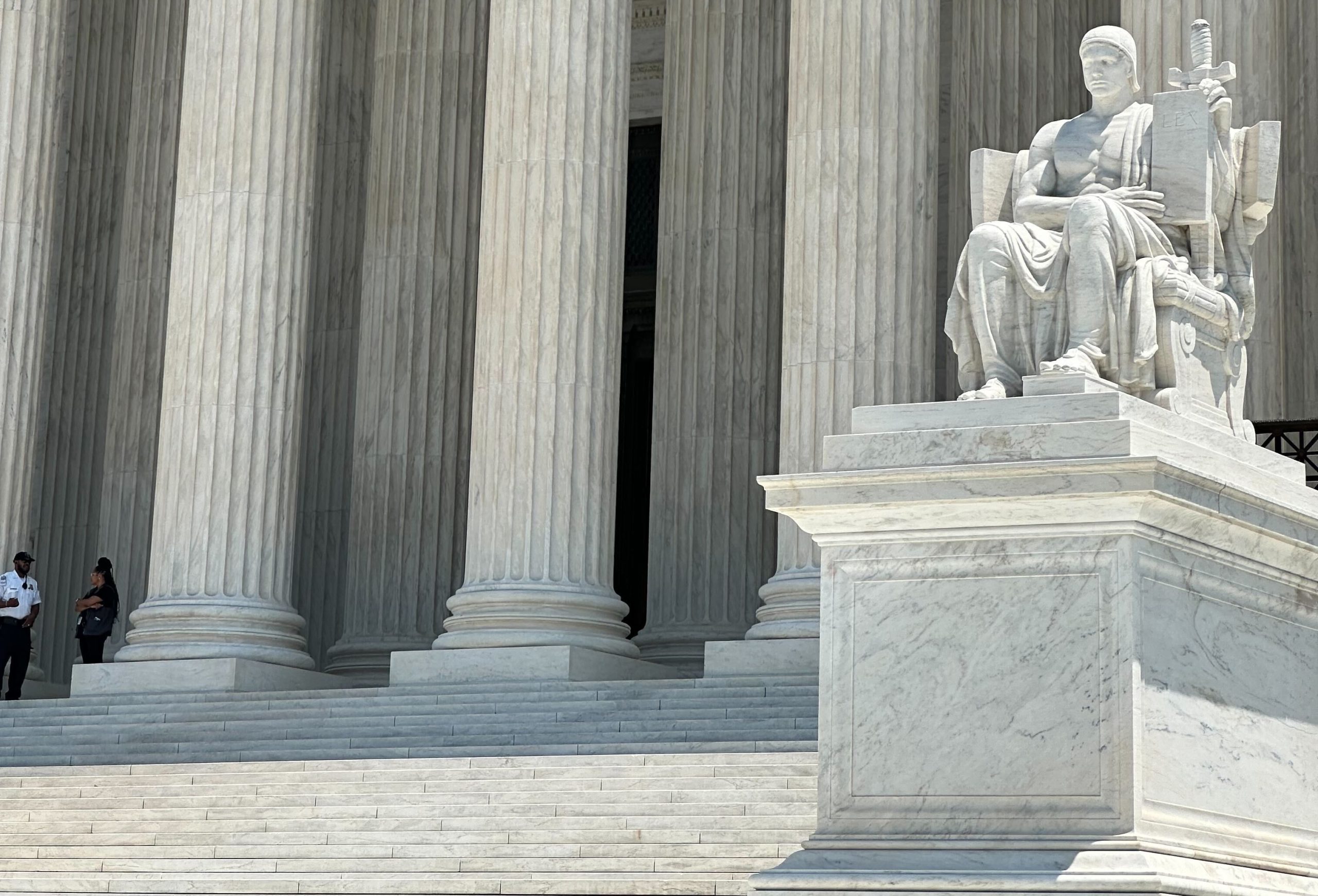EMERGENCY DOCKET
Court declines to delay Bannon’s prison sentence

on Jun 28, 2024 at 6:15 pm

The Supreme Court on Friday afternoon declined a request from Stephen Bannon, who served as an aide to former President Donald Trump, to delay the start of his four-month prison sentence while he asks the Supreme Court to review his case.
Bannon is scheduled to report to prison on Monday, July 1.
After failing to respond to a congressional subpoena, Bannon was convicted of contempt of Congress in November 2021. The House Select Committee to Investigate the Jan. 6 Attack on the U.S. Capitol – whose authority to issue subpoenas Bannon challenges – ordered Bannon to turn over information about his communications with former President Donald Trump and others in the Trump White House and campaign.
Bannon’s attorney asserted that the information that the committee sought was protected by executive privilege – that is, the president’s power to keep information about the workings of the executive branch confidential – and that he could not override that privilege.
The committee recommended that Bannon be found in contempt of Congress, and the House of Representatives adopted that recommendation by a vote of 229-202.
Three weeks later, a grand jury in Washington, D.C., indicted Bannon on contempt charges. He was found guilty and sentenced to four months in prison.
Bannon appealed, arguing that he relied on advice from his counsel in not responding and therefore reasonably believed that he did not have to answer it.
On June 20 a divided three-judge panel of the U.S. Court of Appeals for the District of Columbia Circuit denied Bannon’s motion for release pending appeal. The majority ruled that he had not justified “a departure from the general rule that a defendant ‘shall … be detained’ following conviction and imposition of a sentence of imprisonment.”
Among other things, the panel emphasized, someone who is seeking to stay out of prison must raise “a substantial question of law or fact” that is likely to lead either to his conviction being reversed or to a new trial. The statute under which he was convicted makes it a misdemeanor to “willfully” fail to respond to a subpoena. “It was enough,” the panel concluded, “that Bannon knew what the subpoena required yet intentionally refused to appear or to produce any of the requested documents.”
Judge Justin Walker dissented. In his view, the meaning of the term “willfully” “is a ‘close’ question or one that very well could be decided the other way” and “may well have mattered at Bannon’s trial.” Because the Supreme Court could decide it differently than the D.C. Circuit, Walker wrote, “Bannon should not go to prison before the Supreme Court considers his forthcoming petition for certiorari.”
Bannon came to the Supreme Court the next day. He contended that the D.C. Circuit’s cases on what kind of intent is required for a criminal contempt conviction conflict with the Supreme Court’s cases interpreting the term “willfully” in criminal statutes, which require the defendant to understand that he is breaking the law.
Unless the Supreme Court intervened, he contended, he will have to serve all of his prison term before the justices can weigh in on that question. And “the stakes could not be higher,” he asserted: “Under the D.C. Circuit’s caselaw, future disagreements about subpoena compliance will be met not with negotiation — but with indictments.”
The federal government urged the court to reject Bannon’s request, noting that the standard for release from prison pending appeal is “demanding.” The government first questioned Bannon’s claim that the information sought by the committee is protected by executive privilege, noting that Bannon “had left the White House years before the dates of the requested information.” Moreover, U.S. Solicitor General Elizabeth Prelogar added, Trump not only failed to invoke executive privilege before the committee, but he specifically told Bannon’s lawyer that he “didn’t believe” that Bannon was immune from having to testify.
But more broadly, Prelogar continued, the Supreme Court has already rebuffed Bannon’s contention that the lower courts’ interpretation of the term “willfully” was wrong. “A uniform line of cases from this Court,” Prelogar wrote, “confirms that the mental state for contempt of Congress requires only a deliberate or intentional act, and does not recognize a defense for good-faith reliance on the advice of counsel.”
The justices did not offer any explanation for their denial of Bannon’s request, which came three-and-a-half months after the justices turned down a request from another former Trump advisor, Peter Navarro, to stay out of jail while he appealed his contempt conviction.
This article was originally published at Howe on the Court.


